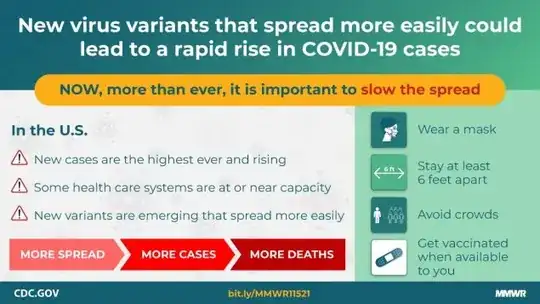A January 1, 2021 article by Zeynep Tufekci reported in The Atlantic talks of a new variant of SARS-CoV-2 which causes COVID-19.
It states:
A more transmissible variant of COVID-19 is a potential catastrophe in and of itself. If anything, given the stage in the pandemic we are at, a more transmissible variant is in some ways much more dangerous than a more severe variant. That’s because higher transmissibility subjects us to a more contagious virus spreading with exponential growth, whereas the risk from increased severity would have increased in a linear manner, affecting only those infected.
To support this, it cites a Dec 29, 20202 Twitter thread by Adam Kucharski (@AdamJKucharski), a professor at the London School of Hygiene & Tropical Medicine:
Why a SARS-CoV-2 variant that's 50% more transmissible would in general be a much bigger problem than a variant that's 50% more deadly.
[...]
The above is just an illustrative example, but the key message: an increase in something that grows exponentially (i.e. transmission) can have far more effect than the same proportional increase in something that just scales an outcome (i.e. severity).
However this is an unreferenced claim and is not in a peer reviewed medium.
Is this claim correct?
